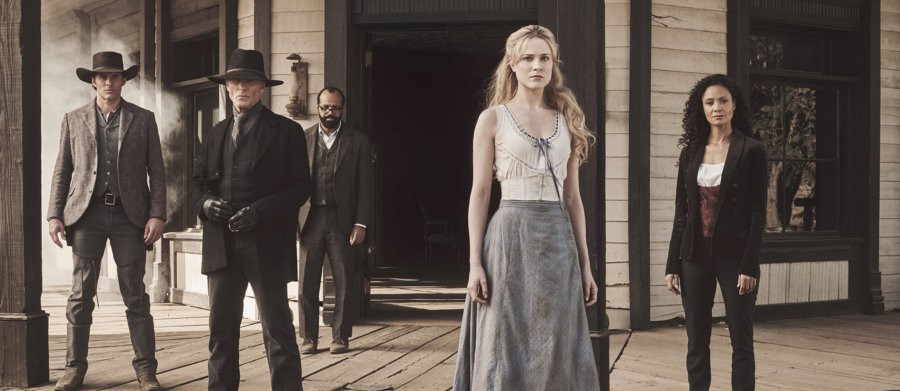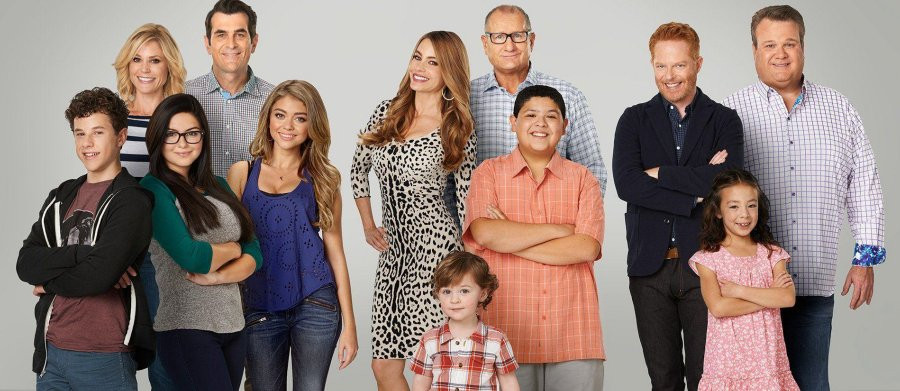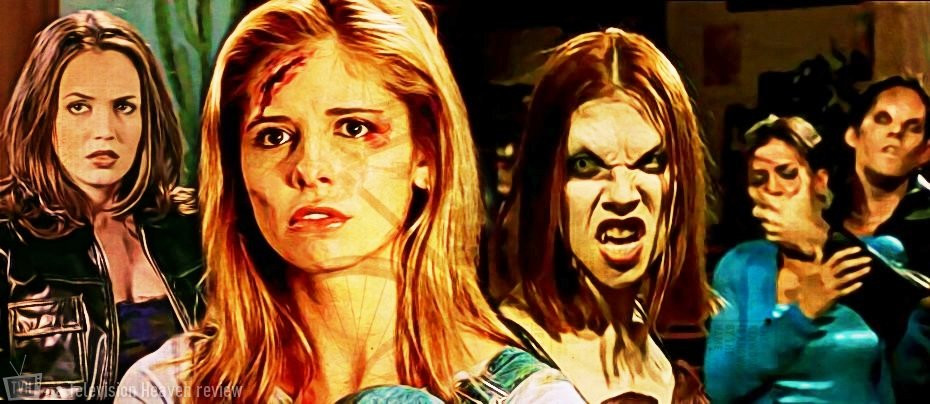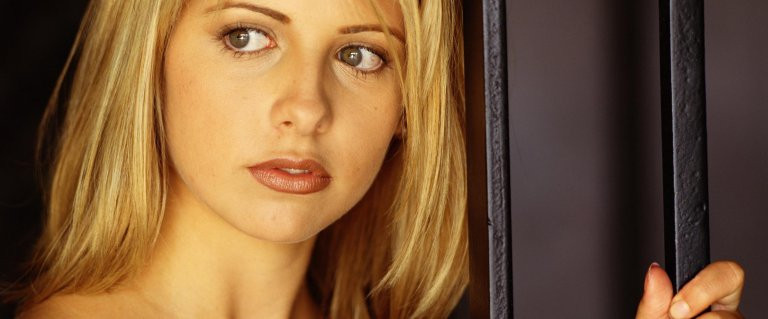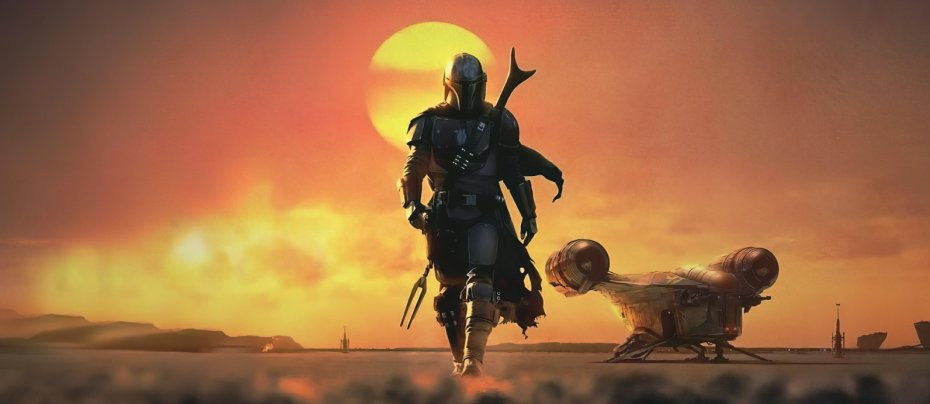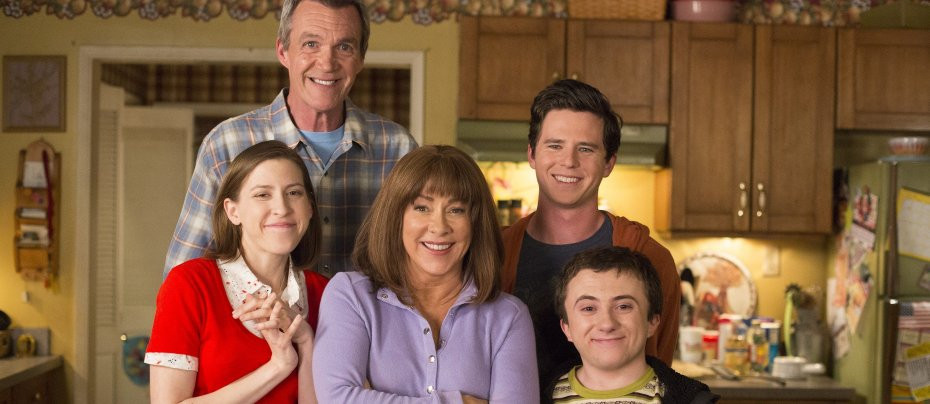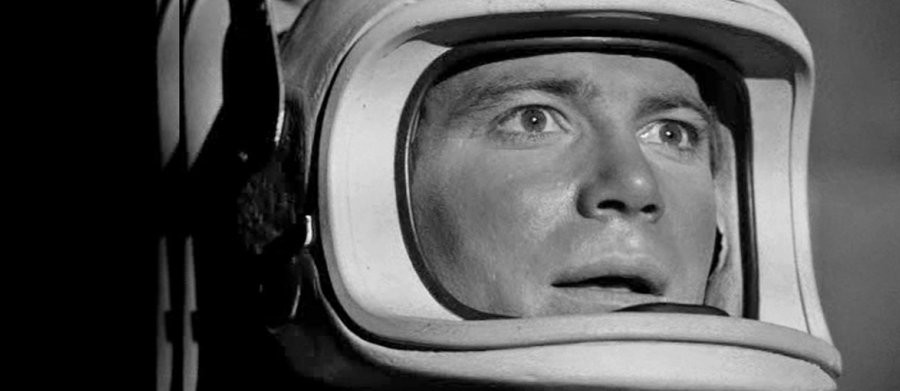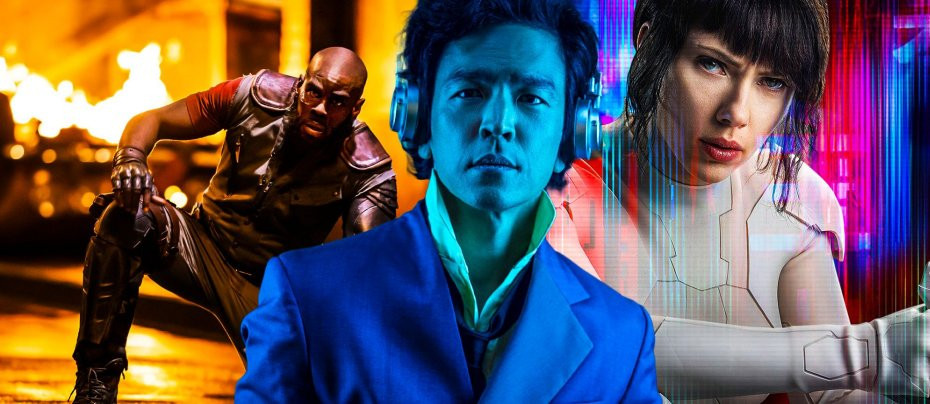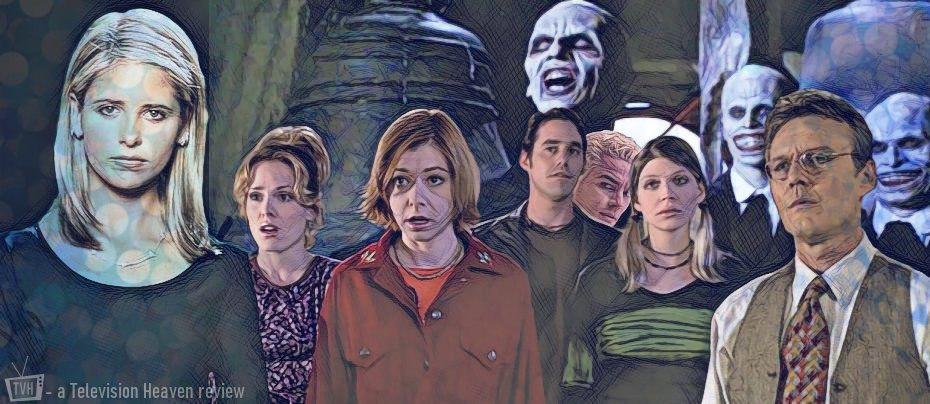
Dollhouse
2009 - United StatesReview: John Winterson Richards
Joss Whedon, possibly the greatest television scriptwriter of our time, prides himself on his feminist credentials. He established them with his breakthrough, and still defining, work, Buffy the Vampire Slayer.
There had been action shows with women in the lead before, most significantly Xena Warrior Princess, but the distinctive thing about 'Buffy' was that the show was about more than Buffy. There were a host of other strong female roles - in fact, Whedon rather beat the audience over the head with his "woman power" message in the final season.
He can be forgiven because, in the process he brought a group of talented young actresses, most notably Sarah Michelle Gellar, Alyson Hannigan, Charisma Carpenter, Emma Caulfield, Eliza Dushku, and Michelle Trachtenberg, to public attention. Most went on to leading roles in major feature films soon after, but only Hannigan really built an ongoing career in the cinema, if the 'American Pie' series can be so dignified.
Hannigan is also the only one who went on to star in a second long running series on television - or at least she managed to survive the longest shaggy dog story in history, How I Met Your Mother, with her honour intact. Gellar, Buffy herself, did some of her best work in Ringer, but that show, perhaps unjustly, never really caught fire. Caulfield has also done some fine work, but mostly in obscure independent projects, of which Bandwagon is the best.
It could be argued that Dushku has been the most successful on television, with the lead in two creditable, if fairly brief, drama series of her own. In many ways, she had already shown that she had the most potential as an action star back on 'Buffy.' As Faith, "the Dark Slayer," basically the Anti-Buffy, she had made the most of her showy role. Her energy dominated every scene in which she appeared, but she also showed she was capable of great subtlety when called upon to perform as Buffy in Faith's body. This proved to be a useful experience.

Her first big television project in the leading role, Tru Calling, was therefore possibly not the best fit for her. The character was relatively passive after Faith - as almost any character would be - and therefore did not play to Dushku's strengths.
She therefore made the sensible decision to return to Whedon for her second television vehicle, Dollhouse.
At this point, Whedon himself seems to have been feeling the need to return to what he knew he could do well, female centred action drama. His more masculine Angel, had come to its end, much loved by those who loved it but not the huge commercial success that 'Buffy' had been. The same was even more true of his Firefly, which had lived up to its name by being as brilliant as it was short lived.
After a couple of years of drift, Whedon was in need of a hit, so he went back to his comfort zone. He also has a well established pattern of working with people with whom he has worked successfully before - there is a definite Whedon Repertory Company. Since she had last worked for him, as a supporting character, Dushku had proved in Tru Calling that she could handle a leading role, so it seemed a logical next step for her to move up to one in a Whedon series.
All the pieces seemed to fit, and fans were excited at the prospect of a Whedon-Dushku reunion. Most probably hoped for something along the lines of 'The Further Adventures of Faith,' even if the character had a different name.
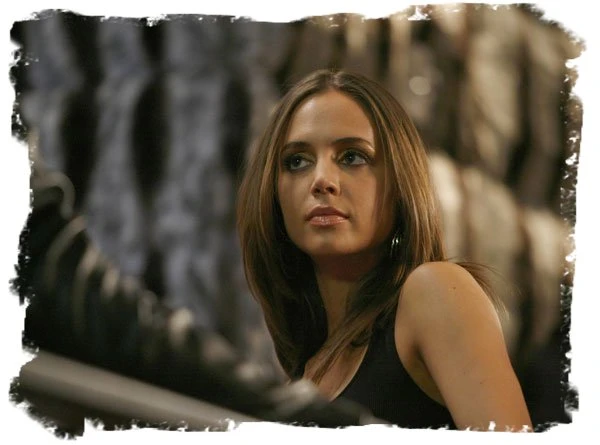
What they got was therefore bound to be a slight disappointment. The premise of Dollhouse is that a number of vulnerable people, mainly attractive young women, agree to sign contracts by which their memories are suspended while their minds are imprinted, temporarily, with artificial personalities and their bodies used in any way paying clients might desire. They become known as "Actives" or, less respectfully, "dolls" - for that is what they are, human toys.

Now this is undoubtedly an intriguing concept. What it is not is feminist. First of all, the women become passive objects, even victims. Second, they are presented as idiots - because obviously only an idiot would agree to that.
It is particularly jarring to see Echo, the Dushku character, that way, even if her rebellious true self soon begins to emerge. No way would streetwise Faith have signed such a contract in the first place.
The show never really overcomes this conceptual flaw. Whedon seems to have seen this and tried to make up for it by piling on the backstory as the plot unfolds, but by that time it is too late and is basically pointing at the elephant in the room. In any case, the whole "No one is what they seem" thing gets to be fairly predictable. There are simply too many twists. Practically everyone turns out to be a hidden "Active" or some sort of conspirator or both. It becomes positively risible - and downright irritating when a revelation about an interesting character undoes all the character's previous development.

There is nothing particularly original about the main story arcs. Indeed, the show has a lot in common with its almost exact contemporary, Terminator: the Sarah Connor Chronicles, which started the year before. So we get the usual evil corporations, mad scientists, tenacious FBI agents viewed negatively by their colleagues, and dystopian futures (it seems the whole human race is going to subjugated by mind wiping technology by 2020 - insert obvious comment).
The constant instability leaves little room for the camaraderie, the humour, and the character development that made 'Buffy,' 'Angel,' and 'Firefly' fun places to hang out, even when they had more than their share of darkness. Some of the characters are entertaining, but it is hard to care for any of them. Whenever we begin to develop sympathy, another plot twist destroys it.
The tragedy of all this is that there are, nevertheless, many of the ingredients of a really great show here. Indeed, on a stand alone basis, most of the individual episodes are very watchable, mainly thanks to Dushku delivering exactly what she was hired to do. Having proved in 'Buffy' how she could be different people in the same body, she progressed in Dollhouse to doing the same on a grand scale with multiple personalities. Although tough girls remained her speciality, she demonstrated great versatility over two seasons of living the actor's dream of being as many different people as possible.

The same was true of Dichen Lachman and Enver Gjokaj, who, as Echo's fellow Actives, Sierra and Victor, were also called upon to play a variety of parts and succeeded in style.
The casting was in general very strong, but it is no surprise that the most interesting member of the regular cast was the ever intriguing Olivia Williams as the branch manager of the "Dollhouse" in Los Angeles. We never quite make our minds about her - not because of dramatic plot twists but because of the complexity of her character. That is how it should be.
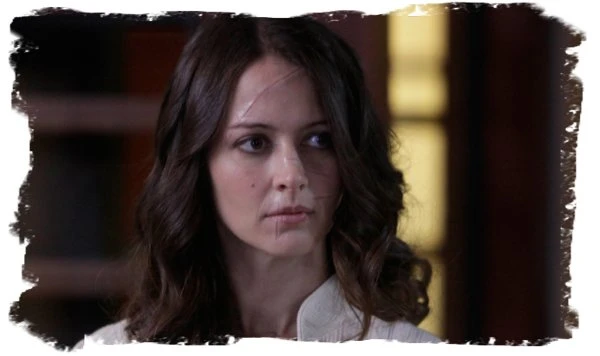
A number of other distinguished alumni of the Whedon Repertory turned up in recurring roles, including Amy Acker, Summer Glau, Alan Tudyk, and Alexis Denisof. Reed Diamond, from Homicide: Life on the Street, is nicely ambiguous as the head of security at the LA "Dollhouse," and Keith Carradine and Ray Wise are well cast as ruthless corporate types. Patton Oswalt makes a mark in a rather poignant guest slot.

The episodic plots, as opposed to the main story arcs, are cleverly constructed, and most of the episodes are sharply written and tightly directed as one would expect of a team headed by Whedon and consisting mainly of his regular collaborators behind the camera as well as in front of it.
The scripts pose some interesting questions about the nature of identity and free will, and if it is one of Whedon's few weaknesses that he does not really engage with the issues he raises, he still deserves credit for provoking thought by raising them.

Given the strength of some episodes as pure adventure stories, one cannot help thinking that it might have been better if Whedon had ditched the whole conspiracy theory thing altogether and tried for more of a jolly Sixties style "caper" feel to the whole show. The irony of the whole project is therefore that Whedon, the man who made his reputation with his daringly long story arcs in 'Buffy,' was ultimately let down by his reliance on them in Dollhouse.
If Dollhouse was therefore a rare misfire, at least by Whedon standards, it must be stressed that a Whedon misfire is still fascinating - superior to the vast majority of shows - and the cast alone makes it worth a look.
Seen this show? How do you rate it?
Seen this show? How do you rate it?
Published on August 12th, 2020. Written by John Winterson Richards for Television Heaven.


